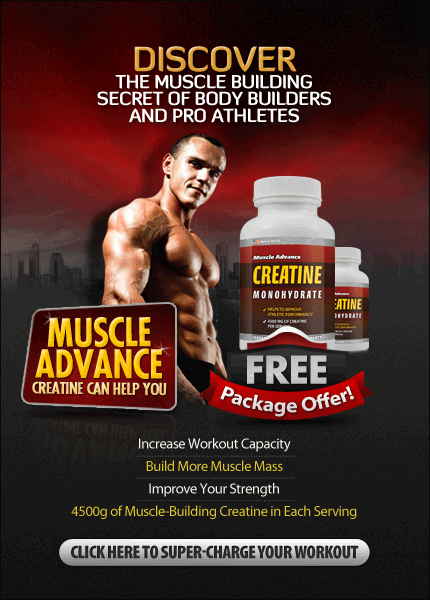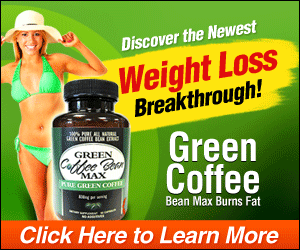Ask bodybuilders what they consider to be the most important energy building nutrients for their sport, and they will likely mention the big three: protein, carbohydrates, and fats. Moreover, most will be surprised at the mention of supplements for bodybuilders that do not include these three nutrients.
And therein lies the problem. With all of the marketing hype about the positive effects of protein, carbohydrates, and fats on strength training programs, most bodybuilders ignore the truly essential vitamins without which they could not reach peak performance levels.
Value of Vitamin Supplementation
Although it is true that bodybuilders need a proper mixture of "the big three" in their diets, vitamins are just as important for proper bodybuilding performance. Indeed, vitamins are responsible for virtually every facet of energy production and muscle growth in our bodies. And that's not all.
According to health science and exercise experts Bob Lefavi and Timothy C. Fritz, "[w]ithout vitamins, muscle mass would decay, bone density would deteriorate and all systems of the body would begin to fail."
Supplements for Bodybuilders
Although all vitamins are important, there are certain ones that are crucial to bodybuilders. Moreover, with respect to choosing which ones are important to your bodybuilding efforts, Lefavi and Fritz recommend that you ask yourself these four questions:
Is the vitamin involved with muscle action, muscle cells, or protein synthesis?
Does bodybuilding increase demand for the vitamin?
Are bodybuilders usually deficient in that vitamin?
Do such vitamins appreciably improve athletic performance?
Fortunately, you do not have to answer these questions because scientists have already done the research for you, and they recommend that bodybuilder's primary vitamin supplementation should be water-soluble.
Benefits of Water-Soluble Vitamins for Bodybuilders
Because the body quickly depletes and does not store water-soluble vitamins, they must continually be replenished through diet or supplementation. Fortunately, the recommended daily allowances for such vitamins are addressed through most people's diets. Bodybuilders, however, have higher requirements for these vitamins due to the unique stresses on their bodies.
Not only are high quantities of water-soluble vitamins needed by all athletes, but they are also ideal supplements for bodybuilders because they are so quickly depleted. Supplementation with fat-soluble vitamins of A, D, E, and K can lead to overdose because they are stored in the body's fatty tissues. There is no such danger with water-soluble vitamins, which require constant replenishment.
Important Water-Soluble Vitamins for Bodybuilders
The following is a list of the most important water-soluble vitamins for bodybuilders. Because they are depleted so quickly, bodybuilders need to constantly supplement with these vitamins.
Vitamin C (Ascorbic Acid): This most popular (and most studied) vitamin is responsible for muscle recovery and growth, the formation of collagen (which is the tissue that connects the muscle to the bones), and the absorption of iron. Supplementation with vitamin C is particularly important for bodybuilders because, as muscle cells are composed mostly of water (and vitamin C is extremely water-soluble), the more musculature one develops the more vitamin C that is lost.
Vitamin B-6 (Pyridoxine): This vitamin is particularly required by bodybuilders because the body's need for it is entirely dependent upon the consumption of protein. (The more protein you consume, the more vitamin B-6 you require). This vitamin is responsible for protein metabolism and carbohydrate utilization.
Vitamin B-1 (Thiamin): Vitamin B-1 is also responsible for protein metabolism. Moreover, studies have shown that it enhances athletic performance.
Vitamin B-2 (Riboflavin): This vitamin is crucial for energy production as it improves glucose metabolism. and readily oxidizes fatty acids. Moreover, one study suggests that supplementation with riboflavin improves muscular hyperexcitability.
Vitamin B-3: Niacin: Niacin is important for proper, and plentiful, energy production. Studies suggest that niacin may be quickly depleted during exercise, which makes higher levels of niacin essential for athletic performance.
Other Necessary Supplements
A discussion regarding supplementation for bodybuilders would not be complete without discussing the importance of vitamin A, vitamin E, and vitamin D.
Vitamin A: This vitamin is essential to bodybuilders because it helps to produce glycogen (for energy) and aids protein synthesis (for muscle growth). Moreover, studies have shown that absorption of vitamin A is partially blocked during intensive bouts of exercise and more rapidly depleted while on a low-fat diet.
Vitamin E: This vitamin protects the health of cell membranes, which is essential for muscle growth.
Vitamin D: This vitamin enables the body to absorb its calcium intake. Proper muscle contraction (as needed by bodybuilders) relies on proper levels of calcium. The most well-known benefit of calcium, however, is its role in strengthening bones. Building strong bones is particularly important for bodybuilders since as their musculature increases, so does the weight that is placed upon their bones.
MultiVitamin Usage
One of the drawbacks of supplements for bodybuilders is the fact that the body does not properly absorb many such vitamins. Depending upon the vitamin supplement, one might, for instance, only absorb 50% of the vitamin (which is an even stronger argument for frequent supplementation). This low absorption rate is particularly troubling, however, for multivitamins, as each of the included vitamin dosages is typically lower than would be the case if taken individually.
But there are pharmaceutical grade supplements with ingredients that have been synergetically combined to enhance the bioavailability of each component. Because the body more readily absorbs the usage of each component, one can obtain more benefit from each supplement.
Supplements for bodybuilders, along with a well-balanced diet, are crucial for proper athletic performance, muscle enhancement, and healthy functioning. They are a relatively low-cost, low-risk way to aid the development of a sleek, well-muscled physique.
Article Source: http://EzineArticles.com/3720406




















0 Comments